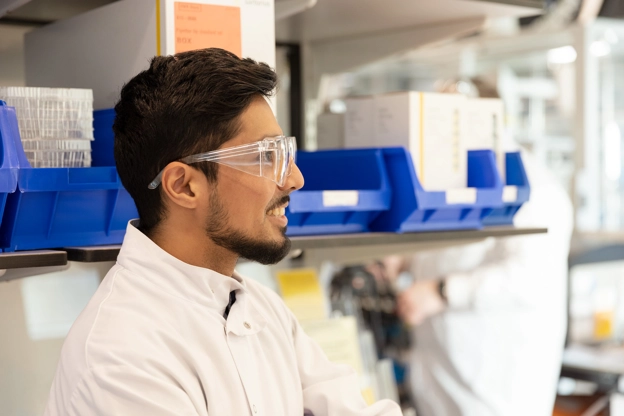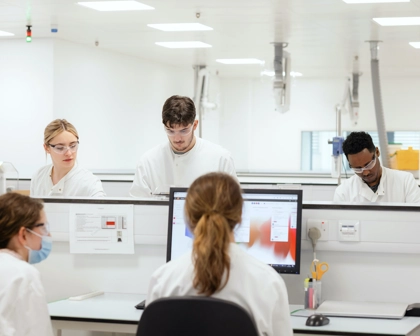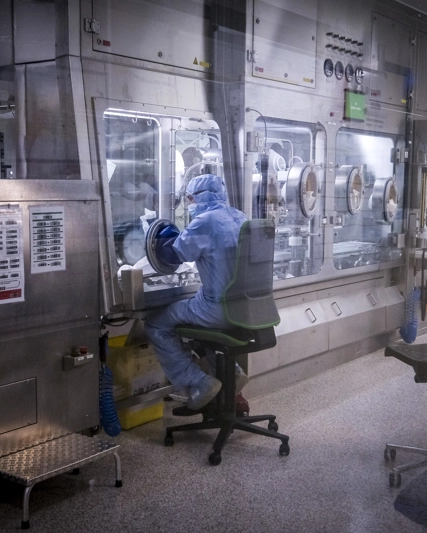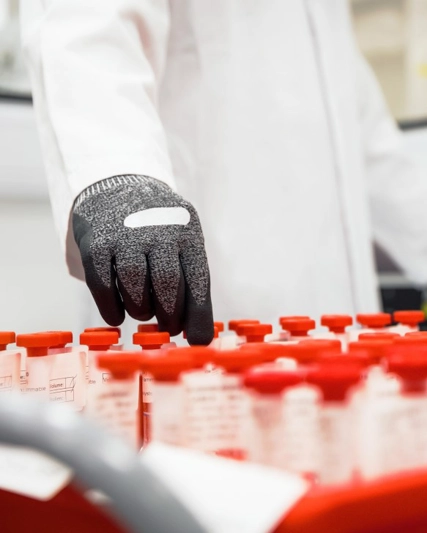Why invest in GSK?
Because we unite science, technology and talent to get ahead of disease together - prioritising Innovation, Performance and Trust to deliver strong and sustainable shareholder returns as a company where our people can thrive.

Our step-change in growth
- Expected sales growth of more than 7%* and core operating profit growth of more than 11%* on a compound basis 2021-26
- R&D focused on the science of the immune system and advanced technologies
- Positively impacting the health of 2.5 billion people by the end of the decade
- Leading responsible business performance to be maintained
*View our cautionary statement regarding forward-looking statements
ANNUAL REPORT 2024
We are a focused biopharma company with strong momentum and big ambitions
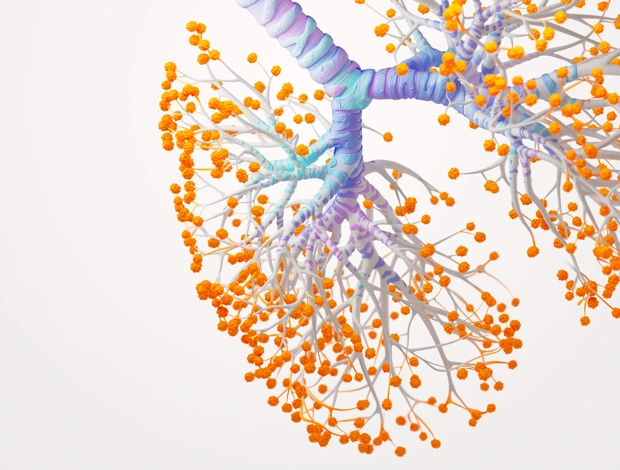
Business model
We improve the health of hundreds of millions of people around the world by discovering, developing and manufacturing innovative specialty medicines, vaccines and general medicines at scale.
We invest in outstanding people
Central to our success are our people. We also collaborate with world-leading experts and form strategic partnerships to complement our existing capabilities.
Our long-term priorities
We prioritise Innovation, Performance and Trust to be ambitious for patients, shareholders and our people.

Our R&D purpose is to unite science, technology and talent to get ahead of disease. This is how we discover and develop the medicines and vaccines that will transform people’s lives.
In a revolutionary era of science and technology, we’re making the most of rapid advances to drive the discovery and development of vaccines and medicines. Across our pipeline, we consider not just how we can prevent disease in the first place, but also intervene and treat earlier to change its course, preventing or slowing progression of an illness and limiting longer-term complications.
Assets in the pipeline
71Assets in phase III/registration
19Major product approvals expected in 2025
5
Business sustainability
Responsible business is an integral part of our strategy and our investment case. It is a key driver in our goal to deliver health impact and shareholder returns as well as being core to the motivation of our people. We will pursue a focused approach to responsible business, driven by our strengths, informing our strategy and addressing the key challenges of our industry over the long-term.
We have six priority areas to build trust addressing what matters most to our business and to our stakeholders.

Governance
We are committed to operating at the highest standards of corporate governance. We believe our governance structure underpins our ability to deliver the Group's strategy to create long-term value and benefit for our shareholders and stakeholders.
*defined on page 51 of FY 2024 press release



